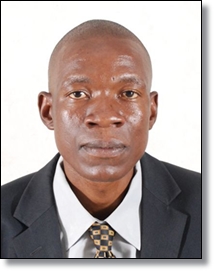Vibrant Economy: Is Africa on Track?
 |
| Moses Hategeka- the author |
The ongoing oil discoveries in countries such as Uganda, Cameroon, South Sudan and Burkina Fasso has attracted global companies such as Tullow oil, Heritage, and CNOOC among others, which previously used not to be present there. They have invested in sectors such as oil and gas, mining, hydro power generation and agriculture among others.
If Africa continues to attract more FDI as it is doing now, the continent will experience increased revenue flows, widened tax base, reduced dependence on foreign aid and overall infrastructural and social development in the next 20 years. African countries should increasingly invest more in road construction, power generation, industrial parks, sound micro and macro-economic policies as well as transformative and visionary leadership. This will continue attracting more investors.
Transformative and visionary leadership deficiency is a major obstacle to Africa’s development journey. With all the natural resources the continent is endowed with, the continent should be much richer than it is today, if it was not because of the poor leadership on the continent. Almost all African countries are being led by transactional leaders, who together with their loyalists are mostly interested in wealth accumulation and power retention using their countries resources.
The skyrocketing corruption in Africa is largely due to the lack of political will on the part of leaders to stamp it out as they themselves are its beneficiary. The current misuse of Africa’s resources by leaders is outright stealing with impunity. Take the case of Equatorial Guinea whose leader Theodore Nguema is worth more than $800 million in addition to owning expensive property in different capitals in the world but whose subjects are living on less than $1 a day. DRC also loses more than $700 million annually to corruption. According to the World Bank reports Uganda, Kenya, Nigeria, Gabon and others, are also lose millions of USA dollars to corruption. Unless corruption is practically firmly dealt with, Africa will continually lag behind other continents in terms of development.
Africa still lags behind other continents in terms of technological inventions and innovations. It doesn’t have the capacity to fully exploit its resources (such as oil, uranium) hence surrendering this to developed and emerging countries who ship them to their home countries in raw form and sell finished products back to Africa at a high cost. Africa should invest in education that will enable its citizens to add value to their resources.
The cost of doing business in Africa is still relatively high due to undeveloped infrastructures such as poor roads, less electricity and limited Railways connectivity. This is limiting some investors to come and invest in Africa
Power generation on the continent is still very low to effectively stimulate industrial development. Majority of the African countries are producing less than 100 kWh power per capita. It is only South Africa that is producing significant power to stimulate industrial development. African countries should consider pooling resources together to develop a large pool of hydro-power in DR Congo and Ethiopia for the benefit of the whole continent. They should also do the same, to develop other energy sources such as oil and gas, solar, geo thermal and nuclear as many of them are endowed with uranium. They should also think about investing in bio-fuel technology development
Due to lack of clear stipulated employment and investment policies in Africa, many foreign investors have taken advantage of this to repatriate a big percentage of profits back to their home countries, thereby facilitating capital flight from Africa. This practice should stop. African countries should adopt investment policies that compel foreign investors to reinvest 70% of their profits back to African economies and make 80% of their staff indigenous Africans.
Youth employment creation is very critical. As recent revolutions in Tunisia and Egypt reveal, the continued failure of the African governments to address youth employment means that many of the African governments are sitting on a time bomb.
Democracy should go beyond holding elections to ensuring good service delivery. Transformative leaders will speed this up.
By Moses Hategeka
The author [email protected] is a Ugandan based independent governance researcher, public affairs analyst.
